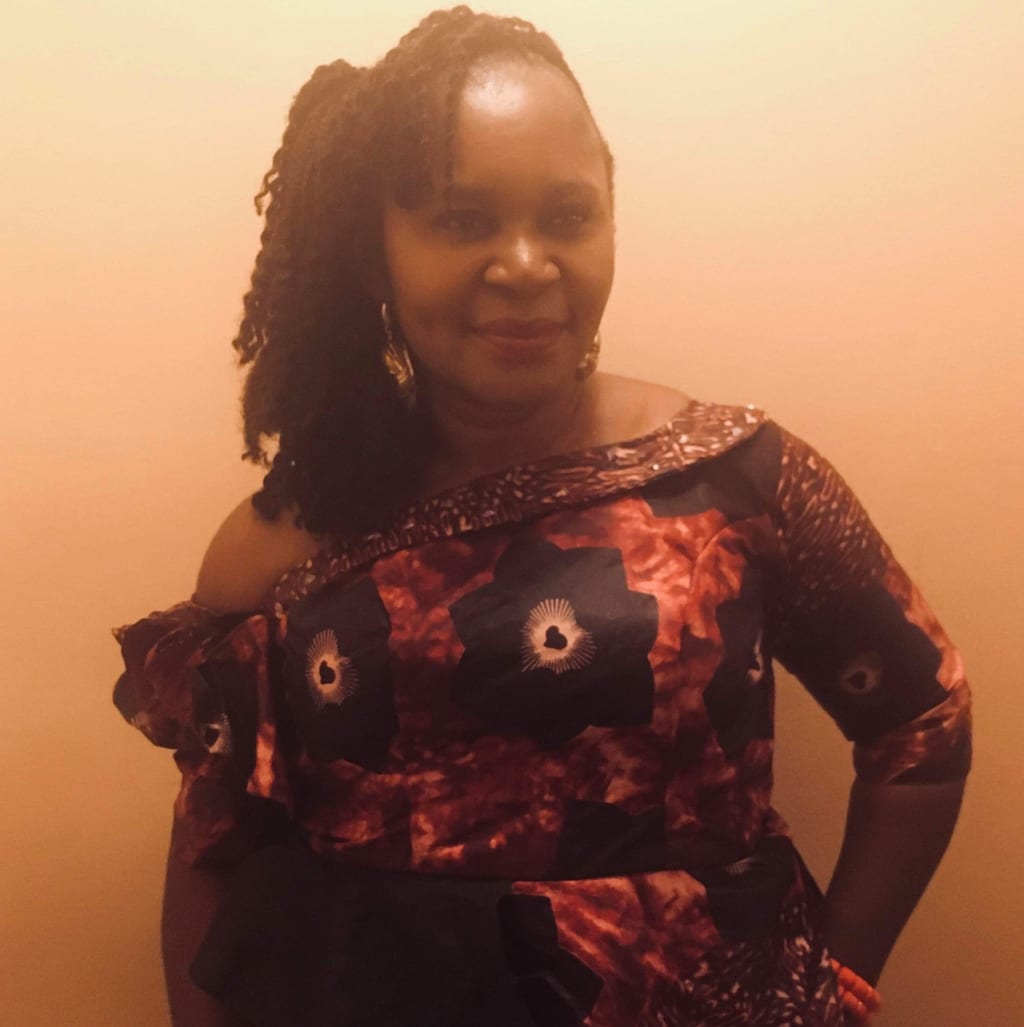
Nora Waneka was a sweet little girl with thick coarse hair and golden-brown skin. She was a beautiful girl with a kind heart and coarse hands. Everyday was a new day with the sun shining ever so brightly above the grass thatched roof of the mud hut where she lived with her grandmother, her stepmother, her half sister and brother, and her ever absent father. The children in the village would laugh and play all evening, after the chores were done, but Waneka, as the little girl was called, would never join them. She sat in the kitchen blowing at the wooden sticks under the iron pot, occasionally stoking the burning embers with one of them, while she tended to supper. Her face was beautiful, but she hardly smiled. Anybody who took a close look at the little girl, who looked about 12 years old, would see a deep sorrow embedded in her dark gaze. Her eyes were like deep wells of unshed tears.
Waneka’s mother had passed away in childbirth, and it was clear to her family, especially her step-mother that she was cursed. The village of Aloka, was an ancient tribal village deep in the central part of Africa, with a chief, village elders who would settle disputes, and long-held traditions including the view of women as inferior to men. Waneka’s mother, Nkiru, was somewhat of a rebel. She was one of the few girls from the village to be educated. Against her family’s wishes, she had followed the nuns who came to the village and encouraged Western Education. She spent time in the city of Enugu, moving around with the other students recruited from the neighboring villages, and learning how to read and write. Her parents did not mind at the time, because the school management made sure to send food stuff and other items regularly to the families of the students, while offering a free education. However, this practice ended once the students finished primary school and entered the secondary school in Emoru. Nkiru’s parents received a letter interpreted by the village postmaster, that she was one of the brightest students who gained admission into the secondary school. She would be educated on a scholarship, but there would not be any further “gifts” sent to the families of the students.
At that point, her family did not see any reason for her to continue her education. What else should a young woman of 16 years start thinking about beyond marriage? Her family was adamant, and soon, Nkiru had no choice but to return to the village. Within two years of her return, she was married to one of her suitors, Dinta, the hunter. Despite her “settling down” as tradition demanded, Nkiru was seen as a rather strange woman. She spent a lot of time with her little writing stick, according to what the villagers observed, and a little black book. She would write and write, filling up pages and pages of it. The strangest part of it all was, that even after three years of marriage, Nkiru was yet to give birth. The entire village looked at her with disdain, and her in-laws were already suggesting a second wife to Dinta. What use was a woman who had no child, especially a male child? Her husband who loved her, did not take a second wife. However, it was certainly an option.
Four years after her marriage, Nkiru was finally blessed with a pregnancy, but unfortunately died in childbirth. Waneka was that girl child who everybody viewed as bad luck. She bore the disdain with as much dignity as she could muster, often suffering under the blows of her stepmother. She had to do all the chores and hardly had any time for herself.
One day, as Waneka finished sweeping the entire compound and went into the hut to shine the walls with cow fat, a thought struck her. She had heard so much about her mother, but had never been into the abandoned hut in the back of the family compound, which was the original marital hut of her mother. It was left quite empty, with ominous tales of misfortune surrounding it. Waneka decided that she wanted to be close to the mother she never met in some way, she wanted to go there. There was nothing to lose, even if the rumors were true that something terrible would happen to whoever ventured in there. She had already suffered enough in her life.
She sneaked through the back of the hut, through the tall grasses that had been allowed to grow around that hut in the back. As she entered through the falling grass door, she shuddered. It was quite dark inside. She made her way in through a pile of cloth wrappers strewn about on the floor. Her big toe stumbled on something solid, she bent down to take a look, and picked it up. It was a small black notebook. She looked around, and picked up two copper bracelets. Hiding these in her small wrapper, she ran back to the big hut.
Every afternoon, whenever she was alone, she tried to look in the notebook to see what was in it. She could not read. One day she decided to wave at the village postman, as he made his rounds on his rickety old bicycle. He was a friendly man who wore khaki shorts, and had a lot of respect for his knowledge. He stopped, sat under a tree with her and helped her interpret what was in that notebook. As he read it out loud, he said, “Little girl if this belonged to your mother, there is an instruction for you in it. There is a woman named Lydia in Emoru, who is your mother’s young friend, one of the Nuns. You are to contact her. It was your mother’s wish. I can help you”. Waneka was very thankful for her new found friend. The postman, Mr. Ndu, found the now middle aged woman from the information in that black notebook, and she came to visit her in the village. She saw her condition and decided to take her with her to Emoru. Waneka received a good education, and went further than her mother could. She became a teacher, and married an educated man from a neighboring town close to the city. She became rich in comparison to the struggling villagers, and became a model of success to many.





Comments
There are no comments for this story
Be the first to respond and start the conversation.